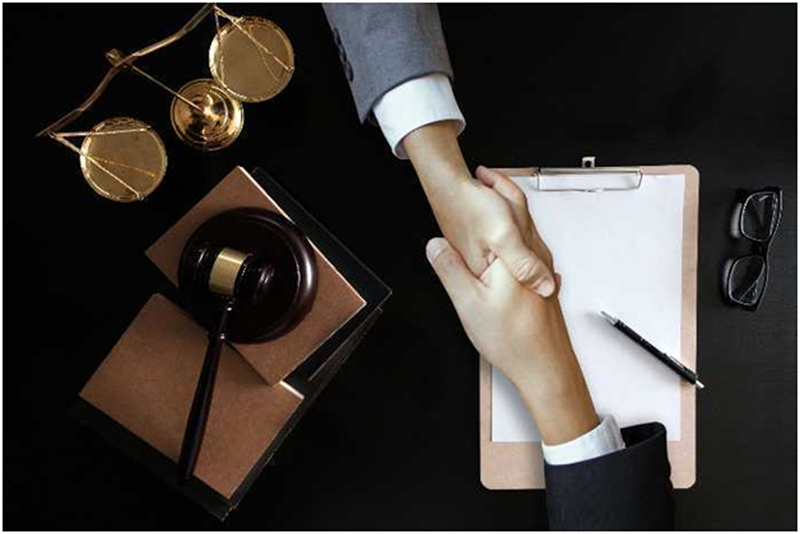
What Is an Attorney-Client Relationship?
The lawyer-client relationship is one of the most important aspects of a lawyer's job. The contract defines this relationship that lawyers have with their clients, which outlines the services that the lawyer will provide. The lawyer-client relationship is also governed by professional rules of conduct, which vary from state to state. These rules require lawyers to maintain confidentiality, integrity, and competence when dealing with their clients.
Client Expectations
One of the most important things to understand about the attorney-client relationship is the client's feelings and the client's case. In this case, attorneys can manage the expectations set by the clients.
What do clients expect from their lawyers?
- First and foremost, clients expect their attorneys to be competent and knowledgeable about the law.
- They also expect their lawyer to be honest and trustworthy.
- Clients expect their lawyers to be available when they need them and to return phone calls on time.
- Clients expect their lawyers to update them on their cases' status and provide them with realistic advice.
Lawyer Expectations
While the client's expectations are important, it is also crucial to understand the lawyer's expectations.
What do attorneys expect from their clients?
- Lawyers expect their clients to be honest. Lawyers need their clients to provide accurate information about their cases so they can give the best legal advice and legal services possible.
- Lawyers also expect their clients to be respectful and to follow their instructions. Furthermore, lawyers expect their clients to timely pay their bills and to communicate any changes in their availability to save time.
The lawyer-client relationship is complex, but it is essential to the practice of law. Understanding the expectations of lawyers and clients can ensure that their relationship is positive and productive.
What Are Some Issues Between Attorneys and Clients?

The attorney-client is a special relationship that is based on trust, communication, and respect. However, there can be tension and conflict in this relationship. Here are some common issues that can arise:
- Clients may feel that their attorneys are not listening to or understanding their needs.
- Clients may feel that their attorneys are not doing enough to help them or are not working hard enough on their cases.
- Clients may feel that their attorneys are charging them too much money.
- Clients may feel that their attorneys are not keeping them informed about the status of their case or what is happening in court.
- Clients may feel that their attorneys are not being honest with them or are withholding information.
- Clients may feel that their attorneys are not representing their best interests.
- Clients may feel that their attorneys are not treating them with respect.
You must communicate with your attorney directly if you have any issues with your attorney. It may be helpful to ask for a meeting to discuss your concerns. You may need to consider finding other attorneys if you can still not resolve the issue.
How To Avoid Client and Lawyer Issues?
Working as a lawyer can be extremely rewarding, but it can also be quite challenging. One of the biggest challenges you may face is dealing with difficult clients or lawyers. While it's impossible to avoid every single problem, there are some things you can do to minimize the chances of having issues.
Here are a few tips on how to avoid lawyer and client issues:
Be clear about your role from the start
One of the best ways to avoid problems is to be clear about your role from the beginning. Make sure you explain exactly what you will do for your clients, and set expectations accordingly. Representing your client's interests will help prevent misunderstandings and frustration.
Communicate regularly
Another way to avoid problems is communicating regularly with your clients and lawyers. Keep them updated on the status of their case, and let them know if there are any changes or delays. This will help keep everyone on the same page and minimize the chances of anyone getting upset.
Be responsive to concerns.
If a client or lawyer does have a concern, it's important to be responsive and address it as quickly as possible. Ignoring problems will only worsen them, so it's best to deal with them head-on.
Be professional at all times.
It's important to remember that you represent your clients and their interests, so it's important to always be professional. This includes avoiding personal conflicts, respecting confidentiality, and maintaining a high level of ethics.
Keep good records
Finally, one of the best ways to avoid problems is to keep good records. This includes both written and electronic records. Make sure you keep track of all correspondence, meetings, and deadlines. This will help you stay organized and on top of things, and it will also be helpful if there are any disputes.
Following these tips can help you avoid client and lawyer issues. Of course, no one is perfect, and there will inevitably be some problems from time to time. However, with this invaluable information, you can minimize the chances of having:
- malpractice claims
- unrealistic expectations
- difficult client
- malpractice lawsuit
- the bad news about your firm or business
In return, as an attorney and your law firm, you will reap the benefits of having excellent lawyer-client relationships. For example, is having
- new clients/many clients
- professional conduct
- clear communication
- interested customer
- the client understands
- right tools for your company or law firms
What Are the Most Common Complaints Against Lawyers?
The most common complaint against lawyers is that they are too expensive. This is often true, as lawyer fees can be quite high. However, there are ways to save money on legal fees, such as using a lawyer referral service.
Another common complaint against lawyers is that they are not very accessible. This can be a problem if you need to get in touch with your lawyer regularly. However, many lawyers now offer e-mail and phone access, so this should not be a major issue.
A third complaint against lawyers is that they can be very difficult to understand. This is often true, as legal jargon can be confusing. However, many resources are available to help you understand the legal system, such as books, websites, and even lawyers.
If you have a complaint against a lawyer, the best advice you can take is to talk to the lawyer about it. Often, lawyers will be willing to work out a solution acceptable to both parties. However, if you are not satisfied with how your lawyer handles your case, you may want to consider finding a new one.
What Are the Most Common Complaints Against Clients?
The most common complaint against clients is that they are not honest. This can be a problem if you are working on a case and your client is not being truthful with you. However, there are ways to deal with this, such as getting a signed affidavit from your client stating they will tell the truth.
Another common complaint against clients is that they are not cooperative. This can be a problem if you need your client's help progressing your case. However, there are ways to deal with such things as getting your client to sign a cooperation agreement.
A third complaint against clients is that they are not available. If you need to meet with your client regularly, this can be a problem. However, many clients now offer e-mail and phone access, so this should not be a major issue.
If you have a complaint against a client, the best thing to do is talk to a lawyer. Often, lawyers will be willing to work out a solution acceptable to both parties. However, if you are not satisfied with how your lawyer handles your case, you may want to consider finding a new one. You have the absolute right to do it anyway.
Reasons Why Clients Fire Their Attorneys
- One common reason why clients fire their attorneys is because they feel like they are not being heard. If a client feels like their attorney is not listening to them or taking their concerns seriously, it can create a rift in the relationship that is difficult to repair.
- Clients may choose to fire their attorneys if they feel they are not being kept in the loop. If an attorney is not keeping their client updated on the status of their case or what is happening with their legal matter, it can be frustrating and cause the client to lose faith in their representation.
- Additionally, some clients may fire their attorneys because they feel they are not getting the desired results. If a client feels like their case is dragging on without any progress being made, they may decide to seek out new representation that they feel will be more effective.
- Finally, some clients may simply decide they no longer want to work with their attorney for personal reasons. This could be due to a personality clash or simply because the client no longer feels comfortable with the attorney. Whatever the reason, if clients are unhappy with their attorney, they have the right to seek out new representation.
How Can This Situation Be Prevented?
If you are a lawyer, there are several things you can do to prevent your clients from firing you:
- Ensure that you keep them well informed about their case and the status of their legal matter.
- Be responsive to their questions and concerns.
- Be available to them when they need you.
- Keep them updated on any developments in their case.
If you do all these things, your clients will be less likely to fire you.
If a client does decide to fire you, there are some steps you can take to try to salvage the situation:
- Try to find out why they are dissatisfied with your services.
- Offer to make changes to your representation of them.
- Apologize for any shortcomings on your part.
- Try to negotiate a resolution that is acceptable to both parties.
If you take these steps, you may be able to convince the client to stay with you.
Of course, even if you do everything right, there is always the possibility that a client will still fire you. If this happens, it is important to remember that it is not personal. It is simply a business decision on their part. Do not take it personally, and do not let it get you down. Instead, use it as an opportunity to learn from your mistakes and to improve your practice.
Conclusion
In conclusion, the client-lawyer relationship is highly important and deserves close attention. Lawyers must be attentive and responsive to their client's needs and concerns and work hard to maintain open communication. Likewise, clients must understand and respect the lawyer's role to create a productive and positive relationship. When both parties work together towards a common goal, the best possible outcome is more likely to be achieved.



